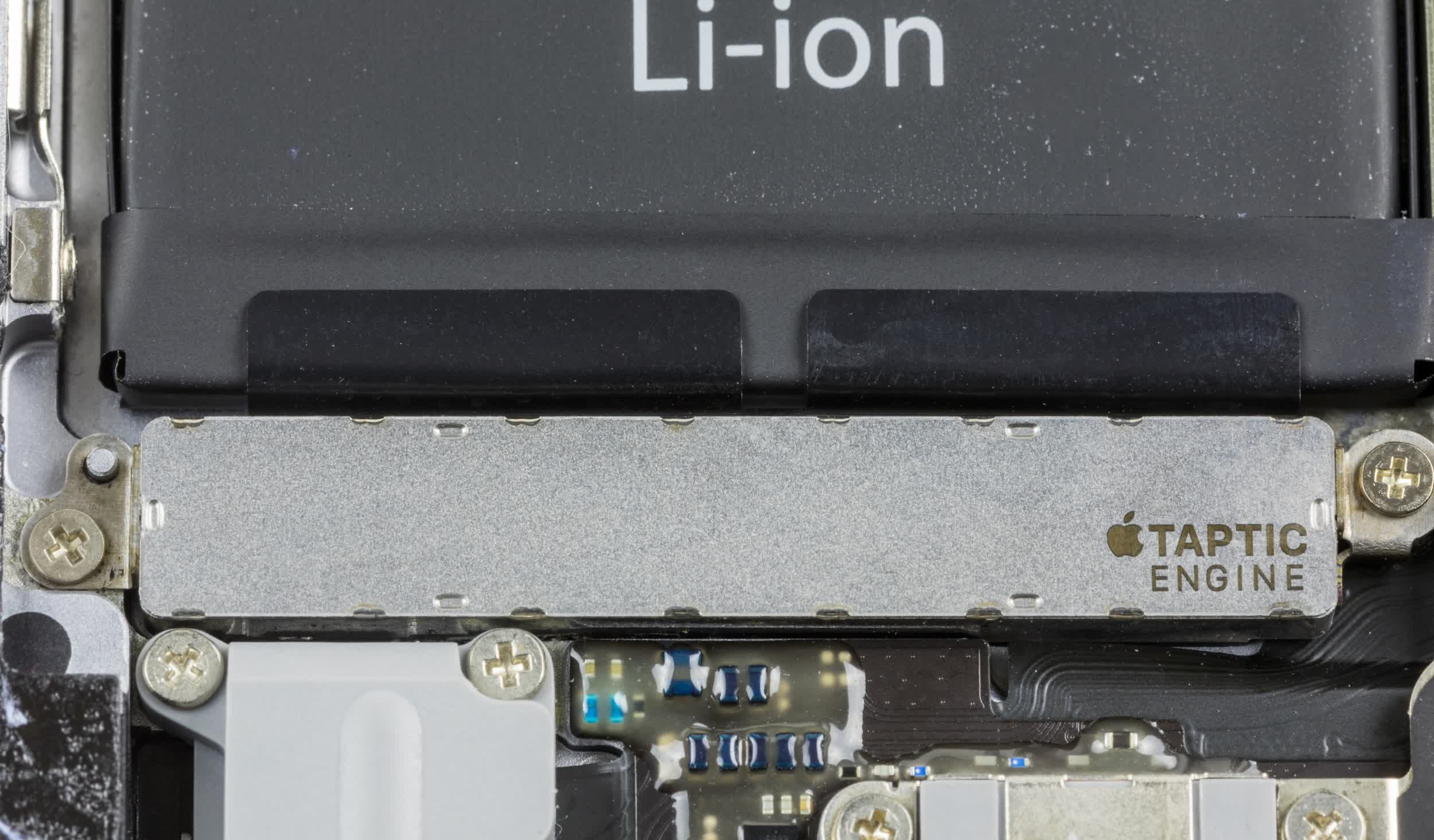Forward-looking: Next year's iPhone 15 Pro may feature changes that'd move Apple one step closer to what some believe could be an eventuality for the company's top-selling product. In a recent series of tweets, Apple analyst Ming-Chi Kuo said his latest survey suggests Apple might replace the physical volume and power buttons on next year's high-end iPhones with a solid-state button design.
The touch-based stand-ins would leverage Apple's Taptic Engine, a haptic technology that uses vibrations to simulate physical button presses.
The implementation would be similar to the home button on the iPhone 7 or the trackpad on MacBooks.
If true, Apple would be looking at increasing the number of Taptic Engines used in each iPhone Pro from one to three. Suppliers that provide the parts for Apple including Luxshare ICT and AAC Technologies would no doubt benefit from the extra orders.

Adding additional Taptic Engines to the iPhone may seem counter-intuitive in terms of complexity but the pros likely outweigh the cons. The Taptic Engine has been around for several years, giving Apple plenty of time to refine its design for robustness. That said, Apple may consider it more reliable than mechanical buttons and it might even free up some real estate inside the densely packed handset.
Eliminating physical buttons would also make the iPhone more resistant to liquids and give Apple a fresh selling point. In fact, Kuo expects high-end Android smartphone makers to mimic the move on their offerings.
Doing away with the volume and power buttons would also bring the iPhone one step closer to what some believe is an Apple milestone - a buttonless, portless slab of glass. Apple has already said it will trade out the Lighting port for a USB-C connector to comply with European law but some believe that is just a stopgap until it can move to a fully wireless charging system. It'll probably be at least another few years before a jump to 100 percent wireless charging is considered but that seems to be the direction we are heading.
Image credit: Raimond Spekking
